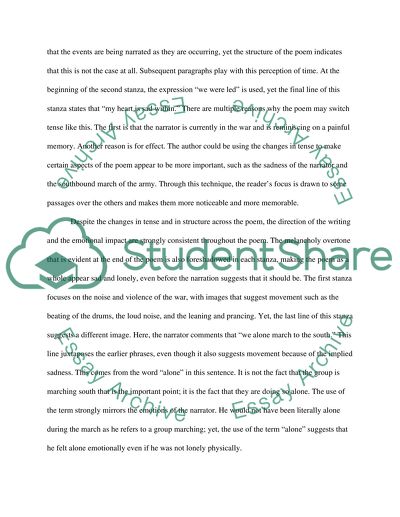Cite this document
(“Deep analyze the poem--They beat their drums in The Book of South Essay”, n.d.)
Retrieved from https://studentshare.org/literature/1458910-deep-analyze-the-poem-they-beat-their-drums-in-the
Retrieved from https://studentshare.org/literature/1458910-deep-analyze-the-poem-they-beat-their-drums-in-the
(Deep Analyze the Poem--They Beat Their Drums in The Book of South Essay)
https://studentshare.org/literature/1458910-deep-analyze-the-poem-they-beat-their-drums-in-the.
https://studentshare.org/literature/1458910-deep-analyze-the-poem-they-beat-their-drums-in-the.
“Deep Analyze the Poem--They Beat Their Drums in The Book of South Essay”, n.d. https://studentshare.org/literature/1458910-deep-analyze-the-poem-they-beat-their-drums-in-the.


